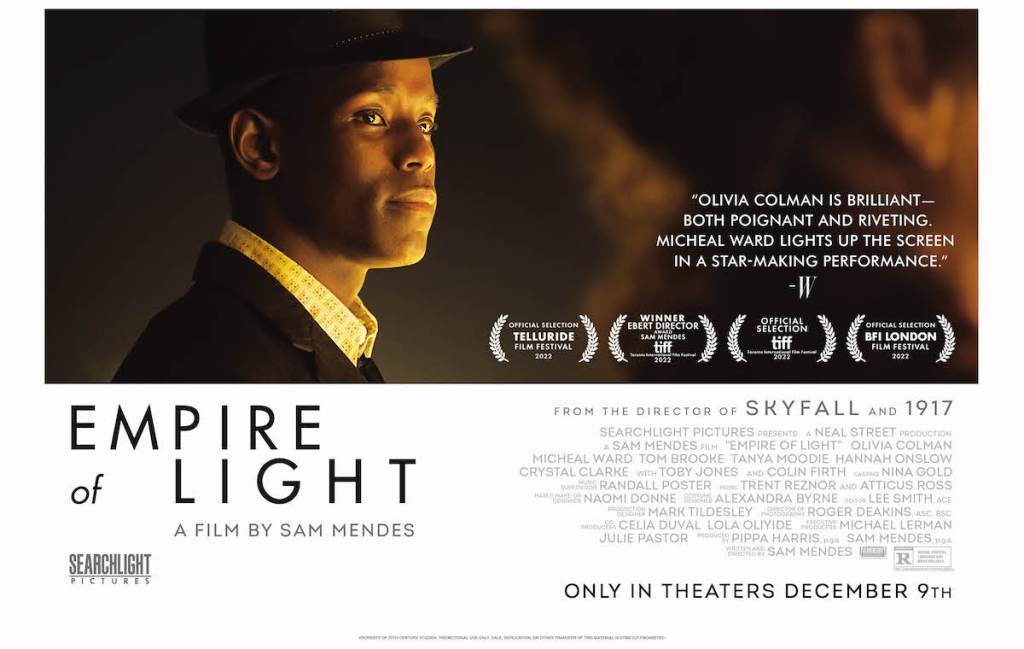We are in a cinema season when movies-about-movies are freely roaming the multiplexes and streaming zones, with such prime examples as the bacchanalian excess of Babylon’s early Hollywood epic and Steven Spielberg’s navel-gazing “this was my life, pre-Hollywood” saga The Fabelmans. Sam Mendes’s luminous new one, Empire of Light, provides a different perspective on the movies — the grand and ongoing tradition of falling under cinema’s spell in actual movie theaters (also a strong plot/subplot in the previously mentioned films).
Mendes’s semi-autobiographical film, gloriously shot by artful cinematographer Roger Deakins, concerns the once-glamorous movie palace the Empire Cinema on the south coast of England in 1980, and the interwoven sagas of its employees (let’s hear it for a film about the unsung movie theater keeps). The tale ticks several pressing socio-dramatic issue boxes, including the volatility of mental illness, festering systemic racism, and the film-about-film genre, but is handled with care, subtlety and a fresh angle or three.
Olivia Colman, in yet another stunning and memorable performance, stars as the fragile-yet-sturdy Hilary (loosely based on Mendes’s own mental illness-afflicted mother) with a troubled past, falling in with the new Black employee Stephen (Michael Ward), a young man with an uncertain future. Mendes knows how to stage volatile, pivotal scenes which can supercharge a film and accentuate its underlying tensions, as demonstrated in his masterpiece American Beauty and again, two years ago, in 1917. In Empire of Light, two such powerful scenes occur, with Colman’s cathartic unraveling in her apartment (ironically to the tune of Cat Stevens’s “Morning Has Broken”) and in a skinhead uprising targeting Stephen — and making a literal blow against the Empire.
Toby Jones stars as a projectionist — the wizard up in the mysterious but critical projection booth — an idealist in hiding, who relishes both the mystery and the technological miracle of the moving pictures. He explains to Stephen that each still frame is followed by momentary darkness, but that, “if you run the film at 24 frames-per-second, you don’t see the darkness.” Grappling with elements of darkness, of escaping into a movie theater’s “beams of light,” is the operative thematic undercurrent in Mendes’s film.
One unstated but implied theme is that, somehow, the effect is diminished in the realm of the home theater, with pause buttons, in-house distractions, and the lack of a crowd of strangers to share the moment with. Mendes has cooked up a delectable ode to the movies — at “the movies.” As it should be.
Empire of Light is screening at the Hitchcock Cinema & Public House.
Support the Santa Barbara Independent through a long-term or a single contribution.

